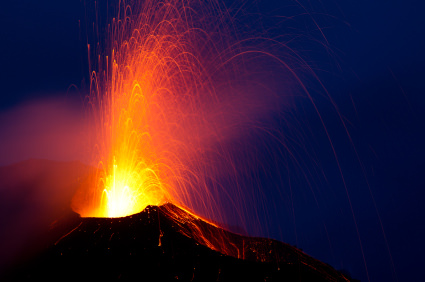When anger arises...
Date Posted:10 May 2012

Do angry words escape your lips before you have a chance to sanitize them? “How dare you… I’ll tell you a thing or two!” For most of us the answer is yes. Why is it that anger arises in the first place and what can we do about it, especially if anger boils over regularly?
Why does anger arise?
Feeling angry is part of the early warning system when a personal boundary has been crossed or is in danger of being crossed causing discomfort or danger. Anger highlights a need to take action to protect yourself or your loved ones. Looked at from this perspective anger can be a helpful emotion that prompts action when it is needed.
Although anger is often a prompt to take action, taking action in an angry way is destructive. Regularly ‘boiling over’ in the heat of the moment or living with a passive aggressive attitude increases inflammation and stomach acids, damages relationships and increases the risk of a heart attack or stroke. Being angry regularly shortens lifespan.
From an Ayurvedic perspective people who have a current imbalance of Pitta dosha are more prone to ‘boiling over’ into anger. This is due to an aggravation or increase of heat in Ranjaka Pitta the primary site of Pitta dosha in the body.
- Pitta dosha governs bodily functions concerned with heat, metabolism and energy production. It’s main activity is to control the chemical transformation processes associated with digestion and metabolism.
- Ranjaka Pitta is located in the small intestine, red blood cells, liver and spleen. It regulates blood chemistry, blood cells and distribution of nutrients through the blood stream. Imbalance is linked to toxicity in the body, blood disorders, skin inflammations and anger. It is Imbalanced by sour fermented foods and vinegar, hot, spicy and salty foods, fried foods, red meat, alcohol, caffeine or energy drinks, smoking, avoiding meals when hungry or excessive fasting, inadequate rest, regular sleep disturbance, overwork or working at night and lack of harmony in relationships.
What to do?
Taking action while in the grip of the heat of anger may not create the outcome you want. Allowing the flame of anger to settle and accessing a deeper knowing of what action to take is more likely to address what caused the anger in the first place. Counting from 1 to 10, or taking 5 big breaths (in through the nose and out the mouth) before responding are helpful techniques that allow the initial heat to pass so you can stand back and identify what action to take.
To reduce the underlying Pitta imbalance allowing you to be cool in the face of adversity:
- Favour sweet fruits like sweet pears, mango and other juicy fruits. Include a bitter leafy green in your lunch and dinner meals such as bok choy, kale or a variety of lettuce you enjoy. Use a salad dressing of olive oil and lime or lemon juice. Ensure you eat meals on time and avoid delaying lunch. Favour sweet, bitter and astringent foods and avoid spicy, sour, fermented, salty, or oily foods. Take food room temperature or warm, and avoid very hot food or drinks.
- To balance Ranjaka Pitta take Emotional Balance (2 tablets) and Premium Amla Berry (2 tablets) prior breakfast, lunch and dinner. After meals take Aci Balance 1 tablet, or drink a cup of Rajas Cup.
- Make a thermos flask of Pitta tea and sip it regularly. Take 1-2 sips (or up to quarter or half a cup if thirsty) every 30-60 minutes.
- Apply Pitta Massage Oil over the body prior a warm (not hot) shower in the morning before breakfast. Where possible allow the oil to soak in for 20 minutes before taking shower or bath.
- Laugh each day! Diary or schedule time to relax daily and nourish your relationships with some quality ‘we time’ regularly.
When Pitta dosha is balanced then the emotional tone is spontaneously contented and compassionate with oneself and others. Adversity is then handled with intelligence and wisdom. As heat and acidity are maintained within healthy norms laughter and joy are a natural outcome and make life en-joy-able!
Related articles
- Prozac? St John’s Wort? Try Natural Healing Remedies for Depression (getbalance.co.nz)
- Restore Emotional Balance the Ayurvedic Way (getbalance.co.nz)
- Depression and an Ayurvedic Approach to Balancing Emotions (getbalance.co.nz)
- Ayurvedic Steps for Emotional Balance (getbalance.co.nz)
- Stress and Laughter (getbalance.co.nz)
- The Importance of Enjoyment (getbalance.co.nz)


